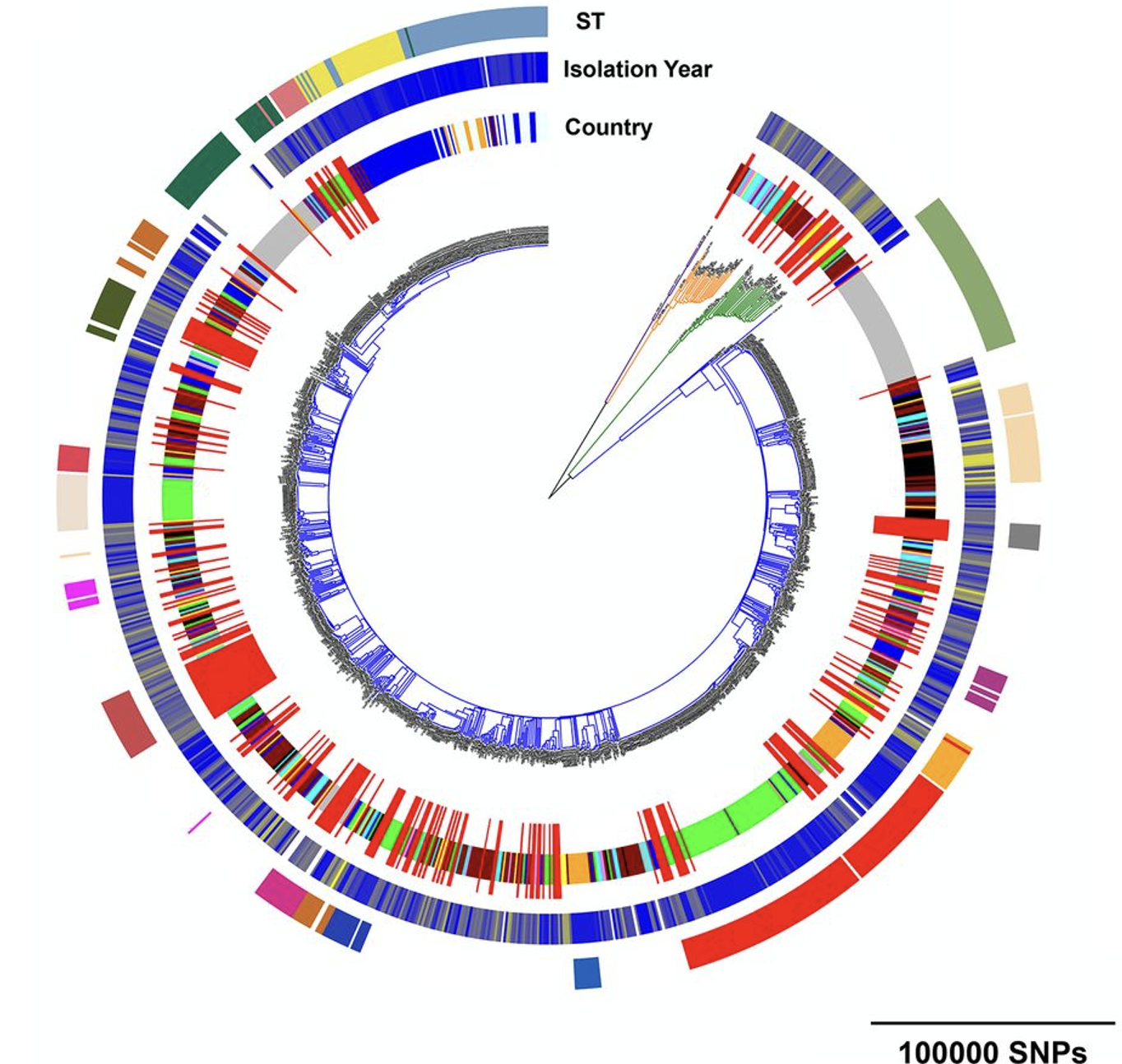

Infectious Disease Epidemiology
Our research is focused on the evolution and epidemiology of infectious diseases, especially in the context of antimicrobial resistance. We utilise a broad range of genomic, phenomic and machine learning approaches to understand the dissemination of pathogens within and between environmental and clinical settings and to pinpoint genetic factors driving the evolution of pathogens. Moreover, we employ machine learning approaches for predicting bacterial complex phenotypic features, e.g. bacterial growth, antimicrobial resistance, and horizontal gene transfer, from genomic variants.

Our vision at
KAUST
Establishment of
IDE lab
The IDE lab has been established at KAUST. We are part of the KAUST Smart-Health initiative. The lab is located on level 4 of building 2. Danesh Moradigaravand is the director of the lab. His office is located in building 3, room 4336.
